Corporate Boards of Directors have huge fiduciary responsability. They need to adapt expertise and the way they operate to address the profound climate, digital and social transformations underway
Huge responsibilities lie on the shoulders of Boards of Directors members. And it takes time to work on a board given the depth of information provided, reactive decisions all too often made in crisis mode model. But the following is a game changer for everyone with boards responsibility: the way fiduciary responsibility is evolving today in response to climate, digital and social transformations.
- What everyone generally knows is related to the authority of the board on the CEO. Board can basically hire, dismiss and define the compensation package of the CEO. Board also approves level of dividends to be paid when appropriate.
- A day to day primary responsibility of a board of directors though is to protect the shareholders’ assets and ensure they receive decent return on investment. It’s a fiduciary duty. Interests of employees may come first and above shareholders, especially in non-profit and / or corporations under specific regulations in Europe or status (e.g. : cooperatives). This can guide a lot of strategic decisions.
- Another day to day secondary responsibility includes oversight of activities setting the mission and vision of the organization, key policies and their enforcement by employees. This can involve extensive time, and may lead to huge risks and responsibilities in absence of enforcement of relevant policies…
Here are primary areas where boards of directors must devote more time and attention to honore their fiduciary duty – and protect themselves !
Digital Transformation and value creation
Boards are often working already on the digital transformation of their organization. This area is overall covered and understood way more than climate and inclusion issues. That said, the speed, scale and depth of transformations underway requires high vigilance to protect assets, employees and long term value of most organizations. I can only flag two issues :
GDPR
General Data Protection Regulation took effect in May 2018 can cost EUR 20 million or 4% of global turnover and apply for any organization based within the EU or serving clients based in the EU… Over the past decade most organizations have started to collect data and explore ways to copy GAFA companies and strengthen their sales, marketing and other practices. GDPR came last year to encourage more ethical responsibility. In practice, Audit Committee for instance is expected to nominate a Data Protection Officer, review how data are collected and validate risks and risk mitigation plan ensuring GDPR compliance. This may often involve third party partners. Digitalization, automation, and development of Internet of thing may make the assessment very complex.
Cybersecurity
Cyberattacks try to access, change or destroy sensitive information, extort money from clients or decision makers, or interrupt operations. Actual risk mitigation is complex and connection between operations, IT and cloud or third party services is critical. There are multiple examples of cyber attacks costing billions or even bankrupt of organizations. Boards of Directors are expected to include cybersecurity as part of regular discussions to monitor cyberisks and assess effectiveness of risk mitigation plans defined. I’ve been part of discussions using real world examples testing how the system had proven to work or fail in response to specific attacks, and what measures had been implemented to strengthen security. Discussion combining diversity of perspectives is very useful to address the complexity of this agenda.
Climate resilience of assets
This really is the elephant in the room. Climate is no doubt the major macro level variable shaping right now, as we speak, a very different operating environment. Every business or organization is impacted. Should we make appropriate level of efforts to mitigate emissions below high risks levels, we would need to basically halve emissions before 2030 – and much more is expected for some industry segments. Regulations, carbon price impacting profitability of business models, customer demand, consumer acceptability… climate is a game changer shaping very different market demand. Generation Foundation, UNEP FI, PRI and Finance for Tomorrow Paris Europlace defined good priorities to revamp fiduciary responsibility of Boards of Directors in a climate constrained world. I think the following is very important for any Board:
ESG priorities
Clarify, map and align across the board on the priority Environmental, Social and Governance issues relevant to the organization. I’ve worked on examples in the food industry where the real issues with climate aren’t really climate itself but several other ESG issued amplified with climate: water stress impacting yields, migrations impacting access to skilled labor, carbon price embedded across sourcing and processing activities triggering questions whether and how to maintain production at competitive price on the long range…
Climate scenarios
A growing number of regulations – art. 173 in France – or global initiatives – TCFD reporting are overall calling for greater reporting and transparency on exposure to climate and carbon risks. A very interesting piece attached to a lot of this flow of information comes with the development of climate scenarios able to show whether and how to define a carbon pathway for the organization and its value chain below the 1.5 degree trajectory. There are multiple assumptions. These scenarios are expected to refine over time with level of data and science getting more detailed and specific every year. Technologies can often be a major variable of uncertainties – a major innovation may dramatically change the carbon profile of an organization. That said, these scenarios can help to generate alignment overall across Board members to guide decisions and protect assets with best level of information available.
Impact of programs on ESG priorities
Organizations are often already developing and implementing various sustainability, ethics and other programs exploring ways to mitigate risks and seize ESG opportunities relevant to their business. There is already a lot of reporting, data and examples available here. To what extent these programs can prove to be effective, deployed at the right level of scale, with capacity to drive the radical transformations needed to adapt organizations to their climate constrainted environments ? Reviewing and challenging impact of programs addressing ESG priorities must become a primary priority for Boards to encourage and push transformation needed to adapt to the climate challenge and protect assets accordingly.
Active management of an Inclusive Growth agenda
This can really be the most exciting part of the discussion. Everyone is opinionated about questions of inequalities, inclusion and role of business to address this agenda. In fact, question is not any longer whether companies should care. Digital transformation and climate are already reshuffling the cards and impacting the way every organization has to play a role to adapt, manage or even seize opportunities generated by the profound social transformations underway. I have been part of discussions where every new infrastructure project generates huge social expectations or challenges. Understanding the social agenda and local dynamics is really important to confirm whether and how assets and investments can make sense between the formal glossy financial numbers showing good return. Boards all to often tackle this agenda in reactive mode when they need to respond to social crisis. It is time to work on a more proactive manner and here are four ways to do that.
Vision and mission
2019 Letter released by Blackrock CEO was calling for organizations to explore seriously the question of purpose. This was not grounded in ethical values. Primary interest was to use purpose to encourage organizations to make sure their mission and vision would remain strongly connected with societal needs. A business disconnected from its market needs is basically doom to lose traction and increase risks of asset depreciation. Several initiatives have explored ways to create for profit organizations driven by impact and mission. Status of Benefit Corporations in the US, and soon to come similar status in France (Loi Pacte) are shaping a different concept of fiduciary responsibility where board members are expected to make decision factoring a social purpose. There is no obligation to engage in this pathway. But Board Members are ultimately responsible for setting the right vision and mission. No doubt purpose can generate more internal alignment and powerful engagement of human capital than dry meaningless mission and vision.
Inequalities for Employee and the Supply Chain
There is a basic reputational principle every child discovered once at school: if you have good reputation, you make friends and people come to play with you. If you have bad reputation, you find it often more difficult to make friends and play with others. In business world, this reputational principle can apply well as well. Treating well employees and business partners, offering opportunities and combatting discriminatory practices for gender balance for instance help to generate good reputation. There is much more than reputation actually – retention, loyalty, quality, innovation. But good reputation is a start, and contribute to generate business oppotunities – and asset valuation.
Inclusion through innovative services and products
Inclusion is a market. And a growing market. 50% of India will become middle class market by 2030. This means you today have huge portion of India population seeking for entry level affordable services and products in the fields of education, health, mobility, nutrition, housing… Inequalities even within OECD economies is a huge opportunity. Boards of Directors have the responsibility to encourage companies to think and seriously explore these opportunities as they can really become the next source of growth and margins.
Tax optimization and fair value sharing where organizations operate and make value
As part of the Yellow Vest movement in France, an aspect was very interesting to me, and very similar to Occupy Wall Street held in the US a few years ago. Yellow Vest people would encourage some consumers to not do shopping in some targeted supermarkets and brands. They would argue these businesses would be owned by families or shareholders doing massive tax evasion. They would encourage consumers to select other brands to call for more acceptable practices in the way corporations would pay taxes where they actually make money and create value. I certainly found the argument appealing. And the following month, in January 2019, OECD signed an agreement to enforce digital tax by 2020 across 95 juridictions. Questions of tax optimization and digital tax are different but overall framing the same question of acceptability in the way corporations increasingly revisit their practices to pay taxes in a way that reflect the actual structure of their operations. Board is the highest committee of authority and is expected to apply best ethical and responsible standards. Tax is an excellent topic to walk the talk.
Conclusion: Fiduciary Responsibility today is increasingly expected to factor digital, climate and social dimensions
All in all, these topics of digital transformation, climate constraints and social changes are unsufficiently tackled by Boards. These topics are of huge importance to understand and make pertinent decisions to protect assets. Responsibilities on the shoulders of Board of Directors is important and exploring these issues is no doubt part of what’s expected to properly make strategic decisions with best judgment in 2019 !
Président et Cofondateur. Auteur de différents ouvrages sur les questions de RSE et développement durable. Expert international reconnu, Farid Baddache travaille à l’intégration des questions de droits de l’Homme et de climat comme leviers de résilience et de compétitivité des entreprises. Restez connectés avec Farid Baddache sur Twitter @Fbaddache.






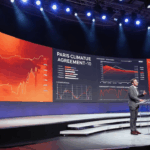






























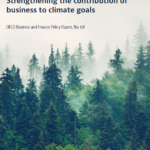

























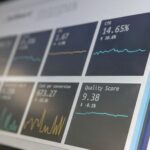







































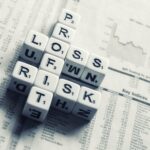








































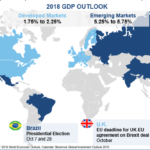













Pingback: Local Stakeholder Engagement on Human Rights - 5 Tips to Get it Right